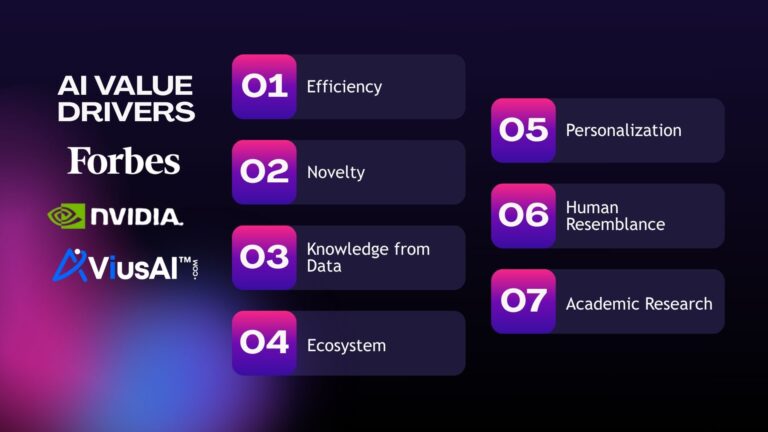The landscape of technology is rapidly evolving, ushering in an era where Artificial Intelligence (AI) is no longer a futuristic concept but a cornerstone of current operations and strategic planning across various sectors, including national defense and commercial industry.
This profound shift is evident in the Pentagon’s bold initiatives, the U.S. military’s embrace of cutting-edge AI tools, and the innovative solutions offered by commercial leaders like Avius AI, further validating that AI is essential infrastructure.
As we delve deeper, it becomes clear that AI is redefining efficiency, decision-making, and service delivery, propelling us into a new wave of technological advancement.
The Pentagon’s AI Imperative: From Experimentation to Operational Dominance
The U.S. Department of Defense (DOD) has decisively moved beyond the experimental phase of Artificial Intelligence, firmly embedding it as an operational technology across its entire structure (Source). This strategic elevation is underscored by the Pentagon’s newly released fiscal year 2026 Research, Development, Test, and Evaluation (RDT&E) budget, which dedicates more than $2.2 billion to artificial intelligence and machine learning initiatives.
This substantial allocation, part of a total RDT&E request topping $179 billion (a significant increase from the previous year’s $141 billion), signals a deliberate realignment. The goal is not merely to explore AI’s potential but to achieve system-wide deployment, fostering long-term technological dominance.
AI and autonomy are now foundational elements, integrated as “enablers within nearly every major initiative” across all domains: air, land, sea, cyber, and space. This integration often involves autonomous systems, such as drones and robotic platforms, which can operate with minimal or no human input.
Specific budget line items highlight this pervasive adoption: “Tactical Autonomy” (0602022F) and “Undersea AI/ML” (0604797N) emphasize AI’s growing role in critical decision-making and control functions.
The Army’s “Artificial Intelligence and Machine Learning Technologies” program (0602180A) and the Air Force’s broader autonomy efforts further illustrate how AI is now considered essential infrastructure, rather than a standalone innovation. Its application extends across electronic warfare, battlefield management, surveillance, and logistics, serving as the core layer powering vital decisions.
Beyond direct application, the Pentagon’s strategy recognizes that AI’s effectiveness hinges on robust supporting infrastructure. A separate budget category, “Software and Digital Technology Pilot Programs,” has received a $1.06 billion request.
This investment aims to build out the necessary software infrastructure to support scalable, secure, and adaptive AI deployment, acknowledging that strong algorithms must be complemented by data readiness, compute architecture, and seamless integration into command systems.
The influence of AI also extends to advanced weaponry, such as hypersonics. With more than $3 billion allocated for hypersonic platforms, including the Hypersonic Attack Cruise Missile (HACM) and other long-range strike capabilities, AI plays a crucial role. These weapons, designed to travel at speeds exceeding Mach 5, demand precise guidance, effective threat detection, and advanced maneuverability, all of which are supported by AI for targeting, trajectory correction, and operational integration.
The budget reflects a comprehensive “full-stack approach,” moving ideas from early-stage science through advanced technology development and system demonstration programs, ensuring a clear path from laboratory breakthroughs to military deployment. This structured progression, with over 200 Army line items alone, underscores a commitment to “convergence,” where each technology is developed with cross-domain integration in mind.
The Army’s Executive Innovation Corps: Bridging the Commercial-Military Tech Gap
In a pioneering move, the Army Reserve has launched Detachment 201, a new “Executive Innovation Corps,” aimed at directly integrating high-tech commercial expertise into military operations. This initiative represents the latest effort by the Department of Defense to tap into the capabilities and know-how of Silicon Valley and the broader commercial sector. Announced on a Friday, the service notably swore in prominent executives from leading high-tech firms at the rank of Lieutenant Colonel.
The inaugural group includes Andrew Bosworth, Meta’s chief technology officer; Kevin Weil, OpenAI’s chief product officer; Shyam Sankar, Palantir’s CTO; and Bob McGrew, an advisor at Thinking Machines Lab and formerly OpenAI’s chief research officer.
These individuals are joining to “bridge the commercial-military tech gap” and “fuse cutting-edge tech expertise with military innovation”. Their role within Detachment 201 is to serve part-time as senior advisors, focusing on “targeted projects to help guide rapid and scalable tech solutions to complex problems”.
This direct infusion of private-sector knowledge is intended to “supercharge efforts like the Army Transformation Initiative,” which seeks to make the force more lean, intelligent, and lethal.
The announcement highlights the specific contributions of these companies:
Meta, which owns Facebook, recently partnered with defense tech company Anduril to develop extended reality (XR) products for soldiers.
OpenAI is widely recognized as the creator of the popular generative AI tool ChatGPT, and both the Army and the broader Defense Department are actively pursuing new generative AI tools to enhance productivity and efficiency.
Palantir is a significant provider of software tools for the DOD, including the Maven Smart System, and is also engaged in hardware development, such as the Army’s AI-enabled TITAN vehicle.
This move is designed to be the beginning of a larger mission to encourage more tech professionals to serve without necessitating a departure from their civilian careers, thereby inspiring the next generation to contribute to national defense while maintaining their professional paths.
While the Army did not immediately provide details on the detachment’s potential growth, it aligns with a new Army Transformation Initiative, spearheaded by Secretary Daniel Driscoll and Chief of Staff Gen. Randy George, which calls for eliminating obsolete systems and procuring “dual-use” capabilities, with Driscoll specifically advocating for buying more commercial off-the-shelf technology.
The Navy’s Strategic Pursuit of Generative AI at Scale
The Department of the Navy is also making significant strides in its adoption of Artificial Intelligence, specifically expanding the rollout of generative AI capabilities for sailors, Marines, and civilians through its emerging DoN GPT tool.
This initiative represents a new approach to rapid innovation and prototyping within the Navy. Generative AI, a field of maturing technologies, excels at processing vast amounts of data to perform increasingly intelligent tasks, such as recognizing speech or producing human-like media and code based on human prompts. These capabilities are pushing the boundaries of what existing technology can achieve.
Historically, the Navy has “struggled with AI adoption,” according to Jacob Glassman, senior technical advisor to the assistant secretary of the Navy for research, development and acquisition.
To address this challenge, Glassman and his team developed DoN GPT as an enterprise-level offering. It is hosted and deploys AI capabilities within the Navy’s Flank Speed cloud service, a Microsoft 365 environment that handles unclassified but sensitive information at Impact Level 5 (IL5). This infrastructure is crucial for scaling the tool and making it accessible to every enterprise user in the Navy and Marine Corps.
The team conducted “alpha trials” over 45 days to identify optimal AI use cases20. Glassman shared an anecdote highlighting the tool’s immediate utility: demonstrating to the assistant secretary how DoN GPT, trained with 12 years of acquisition strategies, could rapidly generate a draft acquisition strategy for a hypothetical program.
This accelerated trial period allowed the developers to identify bugs that might typically remain undiscovered for years after a service launch.
The timing of this rollout is particularly significant given ongoing workforce reductions. The Pentagon has incentivized over 50,000 civilian personnel to retire early or resign as part of a major campaign to cut the federal workforce. The Navy, in particular, has lost approximately 10% of its civilian staff.
Glassman emphasized that AI, specifically DoN GPT, will not replace these personnel but rather “augments the remaining force enough to mitigate [some of] that strain,” by dramatically improving efficiency in tasks like generating acquisition strategies. The team is now preparing for DoN GPT’s “beta trials”.
Beyond DoN GPT, scientists at the Naval Research Laboratory are actively researching and applying AI across diverse use cases, including reinforcement learning, attack simulations (red-teaming and blue-teaming), large language models, and large reasoning models that delve deeper into systems’ thought processes.
A critical aspect of their work involves addressing the risks associated with generative AI applications. They are developing tools that will not only produce genAI output but also identify and present the potential risks of that output to the end-user, ensuring that sailors and other users have a clear understanding of the possible downsides. This proactive approach underscores the Navy’s commitment to responsible AI deployment.
The Ascent of Agentic AI: Avius AI as a Leader in the Industry
While defense sectors harness AI for strategic advantage and operational efficiency, the commercial world is witnessing a similar revolution, particularly in customer service and business automation. At the forefront of this transformation is Avius AI, positioned as a leader in delivering real AI voice and web solutions that work tirelessly for businesses.
Avius AI distinguishes itself through its comprehensive conversational AI technology, offering solutions that fundamentally change how businesses interact with their customers.
Avius AI provides a 24/7/365 AI Voice & Chat Solution, enabling businesses to engage with customers via websites, phones, and chat through seamless conversational AI.. This ensures constant availability, with customers able to interact with a virtual receptionist or customer service AI at any time (Source).
Their technology is designed to enhance customer service by creating “human-like conversational AI interactions”. Through “Agentic AI technology,” Avius AI generates natural voice dialogue that feels authentic, while its AI chatbots deliver consistent service across multiple channels, building trust and satisfaction.
A key innovation from Avius AI lies in its “Smart Workflows & Triggers,” which customize actions based on specific business needs, routing inquiries to the proper department. Their conversational AI solutions create intelligent pathways that streamline customer interactions, from virtual receptionist services to full contact center automation.
This allows the system to understand human context and sentiment to trigger the right workflows automatically, ensuring efficient resolution.
Avius AI also emphasizes brand identity with its “Branded AI Voice & Chat Solution”. Businesses can customize their conversational AI to match their unique brand, with an AI voice generator creating a distinctive sound and AI chatbots maintaining messaging consistency across all channels. This ensures that virtual receptionist and customer service AI solutions authentically reflect the brand’s personality.
Furthermore, Avius AI offers “Business Continuity Through AI Voice Solutions,” seamlessly integrating with existing phone answering service infrastructure. This ensures that no calls are missed, even when the team is unavailable or after normal working hours, routing calls to their AI answering service. Their AI virtual assistant and voice AI solutions maintain high-quality customer experience around the clock through advanced contact center automation.
The company highlights its commitment to “Always Expanding AI Voice & Chat Capabilities,” with a product roadmap that continuously enhances their platform with cutting-edge developments, from advanced AI chatbots to sophisticated audio-to-text transcription.
This commitment keeps businesses at the forefront of customer service automation and contact center AI innovation. Avius AI operates as a “Managed Solution,” providing a complete, fully developed solution ready for immediate distribution and functionality, backed by a dedicated (Veteran and Women Owned) team for ongoing support and changes.
Conclusion: The Converging Future of AI
The profound impact of Artificial Intelligence is undeniably transforming both the defense sector and commercial industries. From the Pentagon’s strategic pivot to operational AI and multi-billion-dollar investments to the Army’s innovative recruitment of top tech executives and the Navy’s methodical rollout of generative AI tools like DoN GPT, the military is rapidly integrating AI into its core functions to enhance efficiency, augment personnel, and maintain technological superiority.
Simultaneously, commercial leaders like Avius AI are revolutionizing customer service for the businesses of all sizes through advanced conversational AI, particularly with their Agentic AI, which demonstrates reasoning, decision-making, and contextual awareness, setting new standards for intelligent automation.
The convergence of these advancements signals a future where AI is not just a tool but a fundamental layer underpinning critical operations and seamless customer experiences across diverse environments.
Whether it’s enabling precise guidance for hypersonic weapons, mitigating workforce shortages through automated support, or providing human-like interactions for global customer bases, AI’s tireless capabilities are driving unprecedented levels of efficiency and innovation.
As these technologies continue to evolve, with future waves promising even greater autonomy and creativity, the ongoing strategic investments and groundbreaking commercial solutions underscore that we are truly in an era where AI is at the very heart of progress.
The collective efforts of military and commercial industry leaders are shaping a future where intelligent systems work tirelessly, empowering organizations and enhancing capabilities on an unprecedented scale.
Book An Appointment With Avius AI
Source: (“AI isn’t just assisting human operators anymore, it’s making real-time combat decisions”)







